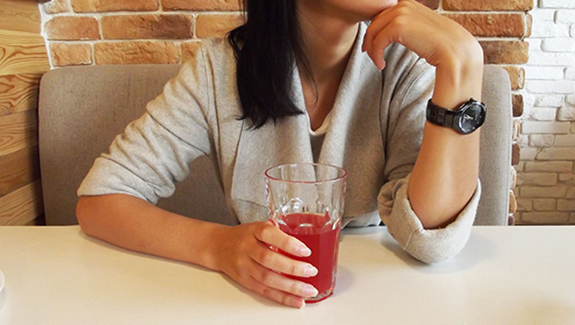Cranberry Juice for UTI Prevention – Myth or Fact?
If you’ve ever had a urinary tract infection (UTI), you’ve likely heard that drinking cranberry juice may help. Let’s explore whether cranberry juice helps prevent UTIs.

Learn if cranberry juice prevents UTIs.
If you’ve ever had a urinary tract infection (UTI), you know how painful and uncomfortable this condition can be. Let’s explore whether cranberry juice helps prevent UTIs. Bacteria can live in the bladder without causing any issues, but sometimes it can grow out of control and cause a UTI. People who use urinary catheters may be at increased risk for contracting this type of infection. This is because a catheter may allow a direct path for bacteria to enter the bladder.
Many people believe that drinking cranberry juice or ingesting cranberry extract in capsule form can help prevent UTIs. If you go online, you’ll likely find plenty of articles that tout the benefits of cranberry juice for UTI prevention. But what does the scientific research say? Is it just a myth, or can cranberry juice or extract really help you avoid UTIs?
The (so-called) secret ingredient in cranberry juice
Before we dive into the research, let’s discuss what it is about cranberry juice that may (or may not) have an impact on UTI prevention. The compound in cranberry juice purported to potentially help prevent UTIs is called proanthocyanidins. Some research studies theorise that proanthocyanidins can help block bacteria from adhering to the bladder wall. According to this hypothesis, this blocking action helps prevent UTIs caused by the bacteria E. coli, which is a common cause of bladder infections.
It’s worth noting that the benefits of proanthocyanidins aren’t just limited to its potential impact on UTI prevention. It’s also an antioxidant, so drinking cranberry juice can positively affect general health.
The research on cranberry juice and UTI prevention
Not surprisingly, a fair amount of research has been conducted on the use of cranberry juice or supplements to potentially prevent UTIs. But what is surprising are the mixed results. Some studies have shown that cranberry juice may help reduce the incidence of UTIs. Others, however, have shown no significant impact. And the waters get even muddier when you look at the test subjects for the studies. They vary widely – from college-aged women, to seniors – and the use of an indwelling or intermittent catheter has influenced study results. In addition, there is some evidence that cranberry juice can dangerously increase the potency of warfarin, a prescription medication used to prevent blood clots.
Regardless of the mixed results, one thing is clear: if you’re not on warfarin, there is likely no harm in drinking natural cranberry juice. However, you may want to stay away from cranberry juices that have added sugar and more calories. You can also consider taking a cranberry supplement instead.
Consult with your healthcare team to see if cranberry juice or extract may help with recurrent UTIs. It’s important to note that there is no evidence that cranberry juice or cranberry extract capsules should be used to treat existing UTIs. If you have a UTI, see your physician for treatment options, which may include antibiotics. To prevent future UTIs, check with your healthcare team to see if they recommend cranberry juice, or cranberry extract in capsule or pill form.




